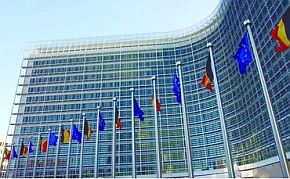Analytics, Economics, EU – Baltic States, GDP, Inflation
International Internet Magazine. Baltic States news & analytics
Tuesday, 13.01.2026, 11:29
Commission: economies of all EU member states expected to grow in 2015
 Print version
Print version |
|---|
Growth this year is forecast to rise to 1.7% for the EU as a whole and to 1.3% for the euro area.
In 2016, annual growth should reach 2.1% and 1.9% respectively, on the back of strengthened domestic and foreign demand, very accommodative monetary policy and a broadly neutral fiscal stance, the Commission said.
Growth prospects across Europe are still limited by a weak investment environment and high unemployment.
Valdis Dombrovskis, Vice-President for the Euro and Social Dialogue, said: "Today Europe stands at a critical juncture. The right economic conditions are in place for sustained growth and job creation. Following the difficult policy choices governments have made due to the crisis, the effects of reforms are emerging. We have to step up the reform momentum to strengthen the recovery and make sure it translates into money in people's pockets."
According to the Commission's forecast, Latvia's economy will increase 2.9% this year and 3.6% in 2016.
The Estonian economy is expected to grow 2.3% in 2015 and 2.9% in 2016, and Lithuanian economy 3% and 3.4% respectively.
Inflation is set to remain subdued in 2015 as low commodity prices dampen the headline figure. Inflation should increase as of mid-2015 and in the course of 2016, as economic activity gradually strengthens, wages rise and the economic slack is reduced. In the EU, inflation is projected at 0.2% in 2015 and 1.4% in 2016. The euro area is forecast to record 0.1% deflation this year and 1.3% inflation in 2016.
According to the Commission, inflation in Latvia will be 0.9% this year and 1.9% in 2016. The respective figures for Estonia and Lithuania both are 0.4% and 1.6%
The unemployment rate is set to fall to 9.8% in the EU and 11.2% in the euro area in 2015. Next year, unemployment in the EU is forecast at 9.3% and in the eurozone at 10.6%.
According to the Commission's estimates, unemployment in Latvia will be 10.2% this year and 9.2% in 2016. In Lithuania, unemployment could reach 8.7% this year and 7.9% in 2016, and in Estonia – 6.8% and 5.9% respectively.
Overall, uncertainty surrounding the existing economic outlook has increased. Downside risks have intensified, while new positive factors have emerged, note the Commission.
This is due to geopolitical tensions, renewed financial market volatility in a context of diverging monetary-policy across major economies, and incomplete implementation of structural reforms. A protracted period of very low or negative inflation would also be detrimental to the growth outlook.
On the positive side, certain factors could lead to a stronger-than-expected boost to global and EU growth stemming from low energy prices, said the Commission.








 «The Baltic Course» Is Sold and Stays in Business!
«The Baltic Course» Is Sold and Stays in Business!

